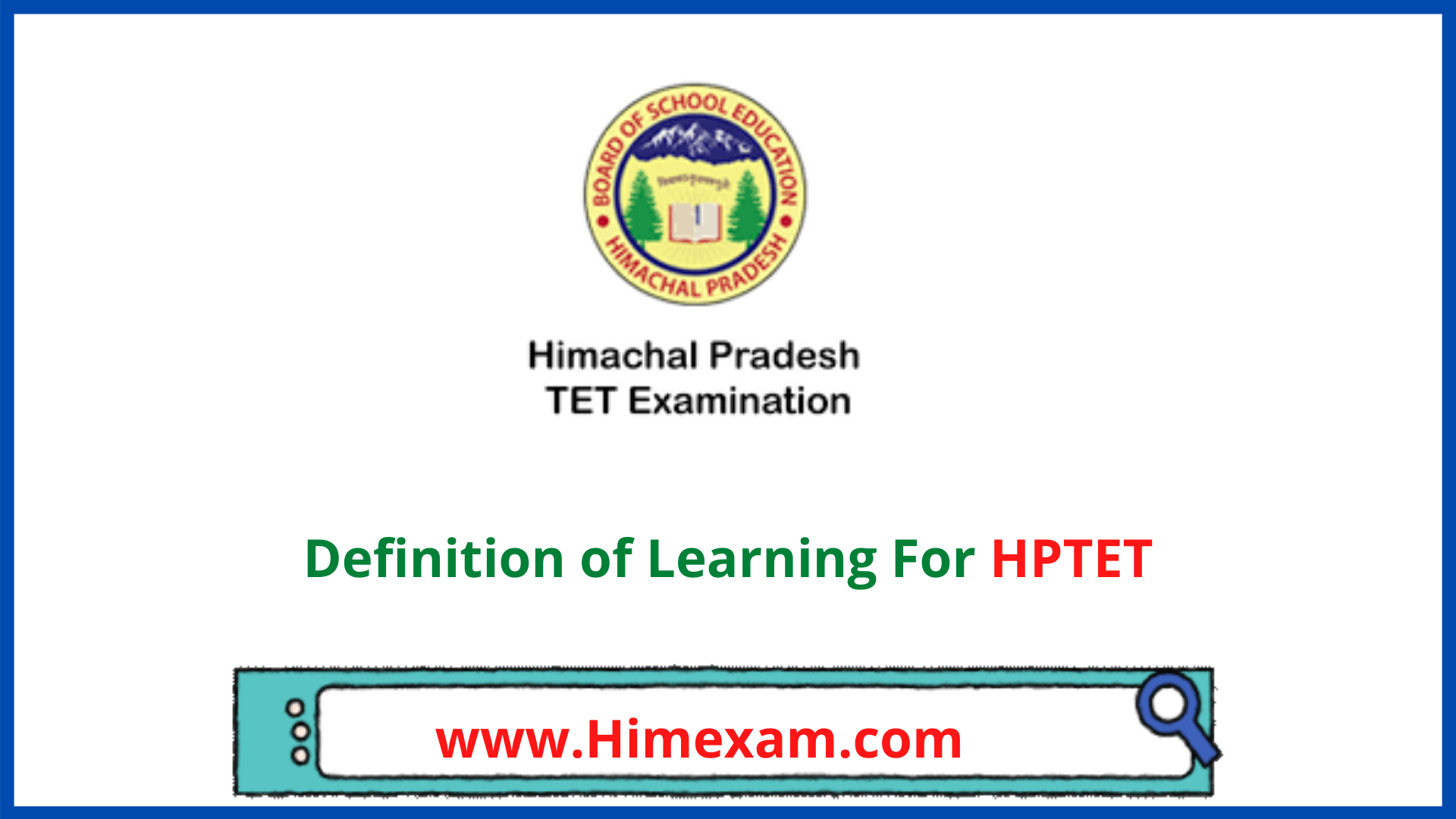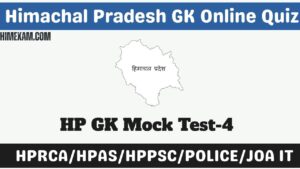Definition of Learning For HPTET
Definition of Learning
It is very difficult to give a universally acceptable definition of learning because psychologists have defined the concept from different angles on the basis of their experiments. The common feature among these definitions is that learning in psychology has the status of a construct which means an idea or image that can not be directly observed like electrons or genes but they are inferred from the behaviour of the organism. Melvin H Marx has defined learning in the following words;
“Learning is a relatively enduring change in behaviour which is a function of prior behaviour (usually called practice)
Explanation : According to the definition given above learning has three attributes:
1. Learning is a some what permanent change in behaviour. Changes occurred due to illness, fatigue, maturation or the consumption of intoxicants is not learning.
2. Learning is not directly observable. It is inferred from the behaviour of the organism in the form of construct.
3. Learning is a function of practice and experience. Experiences adds learning and practice gives it an enduring nature.
Some other definitions of learning are given below:
- “Learning is modification of behaviour through experiences.” :-Gates
- “Learning involves the acquisition of habit knowledge and attitudes”. –Crow and Crow
- “Learning is any change in behaviour resulting from behaviour.” -Guilford
- “Learning includes both acquisition andretention.” -Skinner
- *Any activity can be called learning so far as it develops the individual (in any respect good or
- bad) and makes him after behaviour and experiences different from what that would otherwise have been.” –Woodworth
- “The term learning covers every modification in behaviour to meet environmental requirement”. –Gardner Murply
- “Learning is the process by which behaviour (in the broader sense) is originated or changed through practice or training.” -Kingsley and Garry
- “Learning is the acquisition of new behaviour or the strengthening or weakening of old behaviour as a result of experience.” –Henry P. Smith
- “Learning is an episode in which a motivated individual attempts to adapt his behaviour so as to succeed in a situation which he perceives as requiring action to attain a goal.” – Presey, Robinson & Horrocks
- “Learning is the process by which an activity originates or is changed through reacting to an encountered situation, provided that the characteristics of the changes in activity can not be explained on the basis of native response tendencies maturation or temporary state of the organism (e.g. fatigue or drugs etc.)- Milgard









